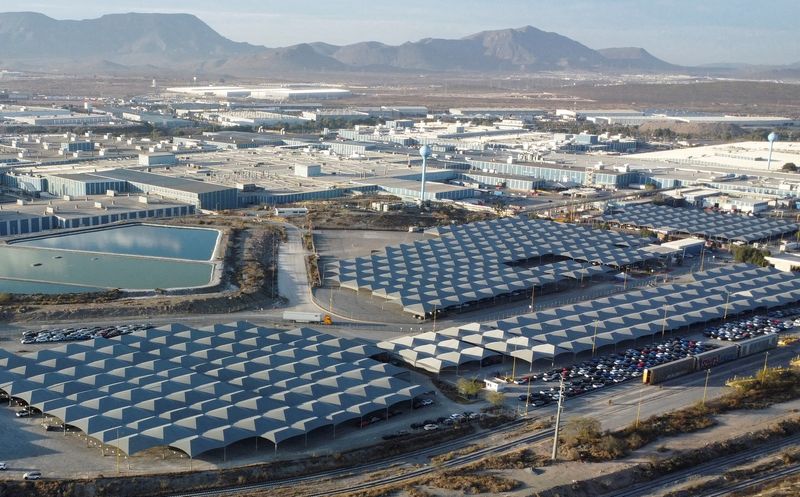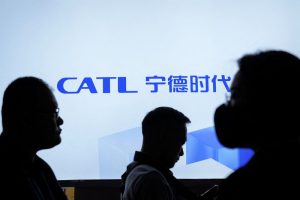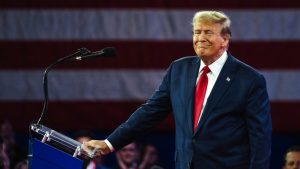
(Reuters) -U.S. President Donald Trump announced a slew of reciprocal tariffs on trading partners on Wednesday, the latest in a series of extensive duties imposed since his return to the White House earlier this year.
The U.S. will now impose a 10% baseline tariff on all imports to the country effective April 5 and higher duties on several of its biggest trading partners.
The levies could be particularly damaging for U.S. companies in sectors already slapped with duties.
The following U.S. business sectors are most exposed to Trump’s reciprocal tariffs:
AUTOS & ELECTRIC VEHICLES
Trump announced 25% tariffs on auto imports last week on all cars and parts made outside the United States. The duties will go into effect on Wednesday.
The Detroit Three automakers – Ford, General Motors and Stellantis – have a much bigger exposure to manufacturing outside of the U.S. vis-à-vis Elon Musk’s Tesla, and face a bigger hit.
CHIPS
Semiconductors were not named in the list of goods subject to reciprocal tariffs, despite Trump stating in February that he intended to impose tariffs of around 25% on the imports of semiconductors and related products.
The 34% tariffs on China, however, could prove disruptive for chips, PCs, semiconductors and server manufacturers, industry experts said.
U.S. chip companies and artificial intelligence networking equipment makers have complex and diverse supply chains spanning multiple countries, with executives saying the near-term fallout from any tariffs will be “uncertain.”
Industry heavyweight Nvidia’s CEO has said the company plans to move manufacturing domestically in response to higher tariffs but expects little short-term impact.
PHARMACEUTICALS
Pharmaceutical products, long spared from trade wars due to the potential harm, were exempt from Wednesday’s announcement, a temporary relief for drugmakers.
U.S. drugmakers have been lobbying Trump to phase in tariffs on imported pharmaceutical products in hopes of reducing the sting from the charges and to allow time to shift manufacturing.
Trump is planning other tariffs targeting pharmaceuticals, an official said.
PC MAKERS
PC makers such as Dell face the risk of potential price increases driven by the tariffs on China. Research firm International Data Corporation lowered its traditional PC forecast for 2025 and beyond in February due to tariff-related risks.
RETAIL & E-COMMERCE
Walmart, Target, Best Buy and several other U.S. retailers have been bracing for a likely hit from the tariffs, especially on key supplier China. The companies have been piling pressure on suppliers over prices on categories ranging from toys to cake pans.


